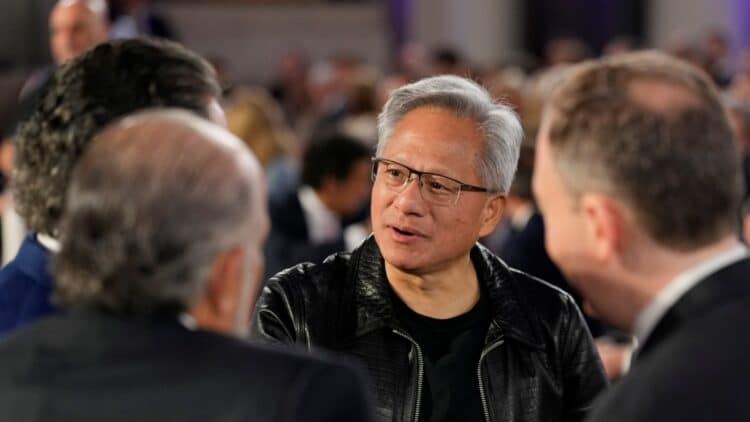By Max A. Cherney. SAN FRANCISCO, July 11 (Reuters)
With rising tensions between the United States and China in the tech sector, any interaction between major companies and the Chinese market has become a target of political scrutiny. The focus is particularly on Nvidia, a global leader in AI chips, whose CEO Jensen Huang plans to visit the country amid strict export controls from Washington. The trip drew immediate reactions from US lawmakers, worried about impacts on national security.
Senators warn Nvidia over potential risks in China visit
A bipartisan pair of U.S. senators sent a letter to Nvidia NVDA.O CEO Jensen Huang on Friday about an upcoming trip to China, warning the CEO to refrain from meeting with companies that are suspected of undermining U.S. chip export controls. The letter from Republican Senator Jim Banks and Democratic Senator Elizabeth Warren asked Huang to also abstain from meeting with representatives of companies that are working with the People’s Republic of China’s military or intelligence bodies and are named on the U.S. restricted export list.
“We are worried that your trip to the PRC could legitimize companies that cooperate closely with the Chinese military or involve discussing exploitable gaps in U.S. export controls,” the senators wrote. An Nvidia spokesperson said, “American wins” when its technology sets “the global standard,” and that China has one of the largest bodies of software developers in the world. AI software “should run best on the U.S. technology stack, encouraging nations worldwide to choose America,” the spokesperson said.
The senators reinforced that any engagement with entities suspected of collaborating with the Chinese military could undermine the strategic objective of export restrictions. At the same time, Nvidia’s position attempts to balance political and commercial interests, arguing that maintaining American technological leadership requires global engagement, including in China, recognizing the country’s software development potential.
Export controls and revenue losses
In May at the Computex trade show in Taipei, Huang praised President Donald Trump’s decision to scrap some artificial intelligence chip export controls and described the prior diffusion rules as a failure. U.S. restrictions in April on AI chips Nvidia modified to comply with export controls to China would reduce Nvidia’s revenue by $15 billion, the CEO said. The hardware necessary to power advanced AI is now subject to a bipartisan consensus related to the free export of such hardware, the senators wrote. Advanced AI hardware could “accelerate the PRC’s effort to modernize its military,” the letter reads.
Although Huang criticized earlier restrictions, advocating for export freedom, lawmakers argue that advanced AI chips could be crucial to modernizing China’s military capabilities saying that any relaxation jeopardizes the United States’ strategic advantage, but from a corporate perspective, these restrictions represent financial losses in a market that still holds great technological demand.
U.S. lawmakers have grown increasingly concerned about efforts to circumvent export controls to China and proposed a law that would force AI chip companies to verify the location of their products. Last month, Reuters reported that a senior U.S. official said the AI firm DeepSeek is aiding China’s military and intelligence operations, and sought to use shell companies to circumvent U.S. AI chip export controls to China. Nvidia is planning to launch a cheaper version of its flagship Blackwell AI chips for China, Reuters reported in May.
Growing pressure for tighter safeguards on AI chip exports
With recent cases of companies like DeepSeek being accused of aiding Chinese operations, Congress is considering stricter laws to monitor the final disposal of AI chips. The strategy aims to close loopholes that still allow advanced technology to enter the Chinese market. Meanwhile, Nvidia is seeking a commercial alternative with simplified versions of its chips to partially meet Chinese demand, but faces criticism that this approach could still indirectly favor Beijing’s technological advancement.

